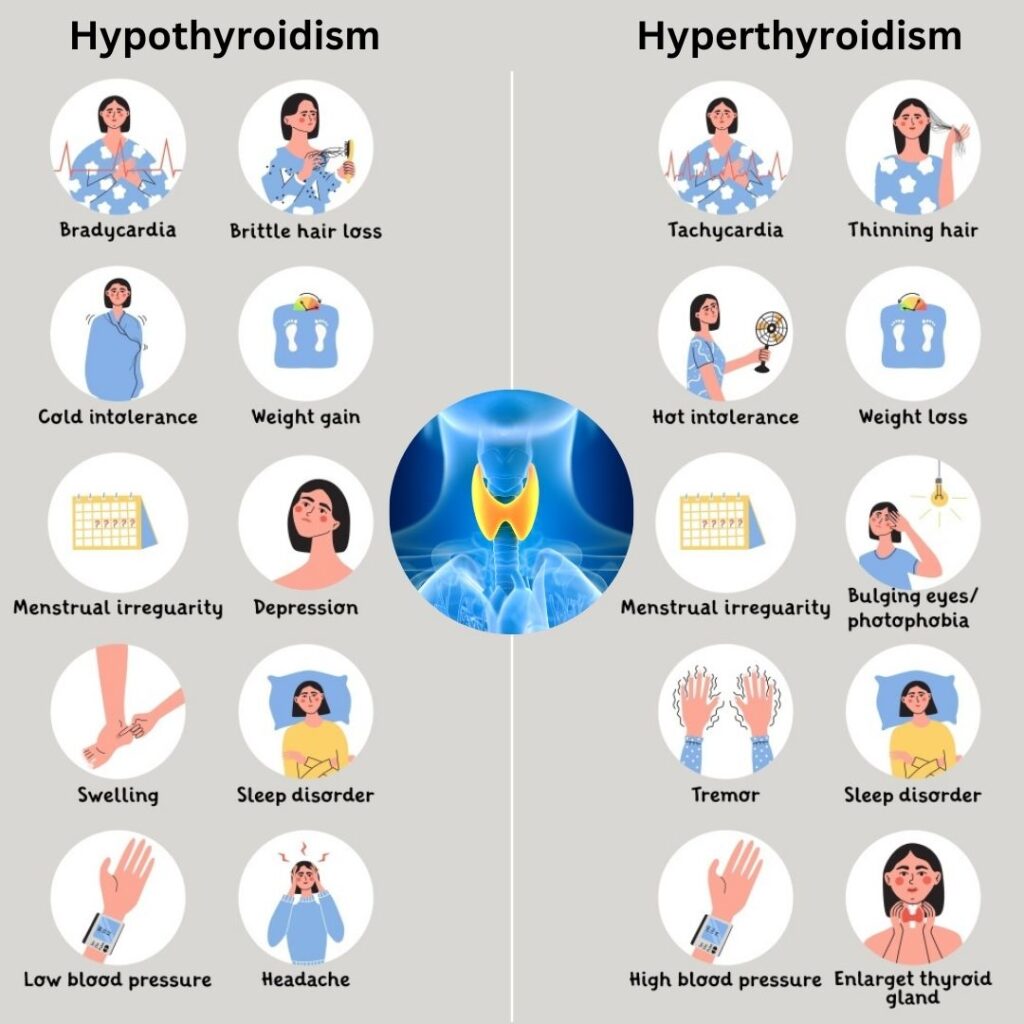What's On This Page?
ToggleYou may know that Graves’ disease is a type of autoimmune disorder that causes the thyroid gland to produce too much thyroid hormone (hyperthyroidism). But did you know that Graves’ disease is shockingly 5 to 10 times more prevalent in men than in women? If you’re not a hundred percent sure if you have this condition, consider reading, 10 Key Symptoms of Hyperthyroidism: Understanding the Overactive Thyroid.
The condition sometimes causes eye-bulging, and yet even with that fairly hallmark symptom, it sneaks under the radar of some physicians. I wrote about a new medication for this eye condition – READ IT HERE.
A goiter can accompany the disorder, depending on the stage. Today, I’ll tell you about a natural breakthrough that could help which costs only pennies per day! If you take advantage of my search feature, you can find a variety of articles that discuss goiters and nodules, as well as fine needle aspiration.

Understanding Graves’ Disease
Graves’ disease is also known as Toxic Diffuse Goiter. As mentioned above, it’s the opposite of hypothyroidism, which is a topic I often write about.
Graves’ disease takes its name after the doctor who described it for the first time in 1835, Dr. Robert J. Graves. It’s actually quite a common condition, affecting more than 3 million individuals in the US and about 10 million people worldwide.
The Immune System and Graves’ Disease
If you have this condition, it causes your immune system to produce antibodies that stimulate the thyroid gland to make more thyroid hormone than you need. You fall out of balance. The exact cause of why the immune system works in this bizarre fashion is unknown, but researchers have identified some contributing genetic and environmental factors. It usually runs in families.
We know that stress and cortisol impact immunity and plays a role in flare ups and severity. Perhaps you want to read my article, How Stress And Cortisol Impact Hashimoto’s And Graves’ Disease.

The Role of Vitamin D in Autoimmune Disorders
You probably already know that vitamin D, commonly referred to as the “sunshine vitamin,” is essential for keeping your bones healthy. But emerging research in the past few years has revealed that vitamin D is needed in most organ systems in order for you to thrive. This is the “secret nutrient” that I think helps Graves’ disease.
A deficiency of vitamin D has been associated with many other autoimmune diseases such as Rheumatoid Arthritis (RA), Multiple Sclerosis (MS) and Systemic Lupus Erythematosus (SLE). You can tell where I’m going with this, right? To Graves’ disease. And I bet you know this already, but Graves’ disease usually occurs along with other autoimmune conditions, it’s not usually all by itself. So people with it may also have Celiac, lupus, vitiligo, rheumatoid, MS or Hashimoto’s.
Recent Studies on Vitamin D and Graves’ Disease
2012 Endocrine Journal Study
In a study published in Endocrine Journal (2012), scientists examined vitamin D levels in 26 women who had Graves’ disease. This data was compared with vitamin D levels in 46 healthy (non-afflicted) women who had normal thyroid function and no signs of Graves’ disease.
The vitamin D levels in women afflicted with Graves’ disease were considerably lower than the healthy participants. The difference in the vitamin D levels between the two groups was deemed “statistically significant,” which means that it is beyond a shadow of a doubt that low vitamin D levels are tied to Graves’ disease.
Further Research and Observations
There was another research study in which the levels of vitamin D in 208 Graves’ disease patients (146 women, 62 men) were assessed. The women were far more vitamin D deficient than the men (38% vs. 17%). To what shall we attribute this?
Perhaps women tend to avoid sun exposure and when they do lay in the sun, they’re more apt to use sunscreen compared to men. Maybe men participate in more frequent outdoor activities without applying sunscreen. It’s just a thought. It could also be tied to hormonal factors like estrogen or testosterone.
Seasonal Variation in Vitamin D Levels
There’s an interesting seasonal variation in vitamin D levels. As you would expect, the vitamin D levels were higher in summertime and relatively lower during wintertime. In winter months more than half the women experienced suppressed D levels.

Health Implications for Young Women
I think the most worrisome part of the research, is that women in their 20s were found to have the lowest vitamin D levels. This has significant health implications, as women are expected to reach their maximum bone mass by the age of 30 and young women with low vitamin D levels are more likely to have lower bone mass and higher risk of osteoporosis in later life.
Vitamin D Supplementation and Graves’ Disease Management
A Case Study from Clinical Medicine Insight (2014)
In 2014, researchers published an article in Clinical Medicine Insight about a woman in her 40s whose symptoms did improve after vitamin D supplementation! She had complained of heart palpitations for the prior three months and finally went in to see her doctor.
In this case study, her physical exam revealed an enlarged thyroid gland which is consistent with Graves’ disease. Lab tests checking for antibodies confirmed that she had Graves’ disease. Additionally, she had lower than optimal vitamin D levels. The patient was given a vitamin D supplement (cholecalciferol 4,000 IU) each day for six months.
After that, she was given a prescription for 50,000 IU per month of a synthetic form of vitamin D… different than the more natural forms sold without prescription. I always recommend natural. Regardless, follow-up showed continual improvement in her mental and physical symptoms. Her improvement was confirmed with better thyroid hormone lab values as well as antibody reduction.
Conclusion: The Potential of Vitamin D
We don’t have thousands of people from a large-scale study, but in my humble opinion, we do have enough data here to make the case that D can support healthy antibody levels not only in Hashimoto’s, but also Graves’ disease. Why? Because we know that vitamin D is an immunomodulator. We know that it supports Th1 and Th2 immune functioning. We know it improves mood in people who feel gloomy and tearful.
Maintaining adequate vitamin D levels through sufficient sun exposure, healthy diet, and supplementation is crucial for keeping your body and mind healthy.
And after reviewing the scientific literature on this topic, I think this could be supportive for people struggling with immune dysfunction, especially as it pertains to high levels of thyroid hormone or erratic, swinging levels. You can always ask your doctor if it’s right for you. Keep in mind that too much D will drive up levels of magnesium and calcium so keep your doses within a healthy range, don’t overdo it.
Finally, if you’d like to learn more, the CLEVELAND CLINIC has an informative site that covers this topic.

Suzy Cohen, has been a licensed pharmacist for over 30 years and believes the best approach to chronic illness is a combination of natural medicine and conventional. She founded her own dietary supplement company specializing in custom-formulas, some of which have patents. With a special focus on functional medicine, thyroid health and drug nutrient depletion, Suzy is the author of several related books including Thyroid Healthy, Drug Muggers, Diabetes Without Drugs, and a nationally syndicated column.


